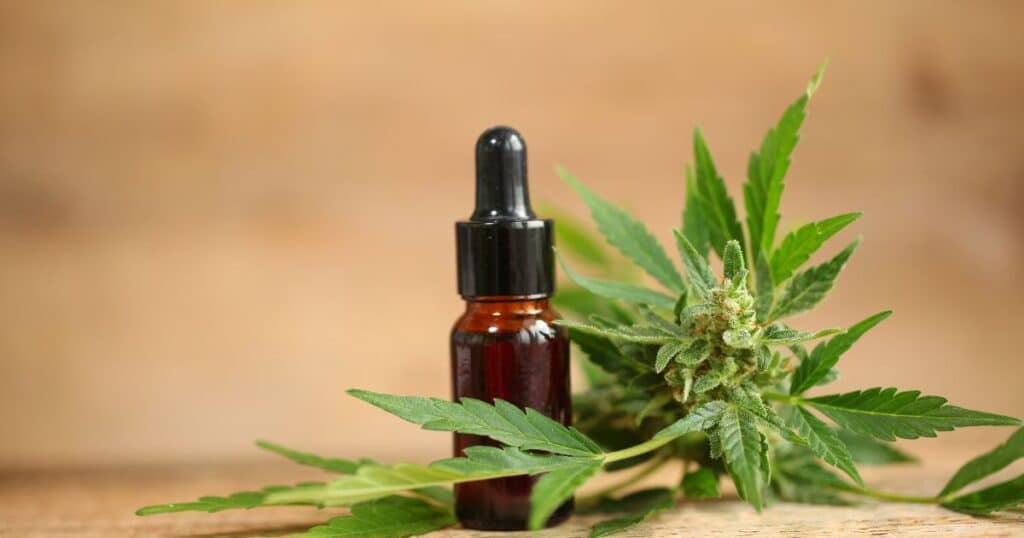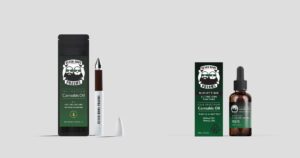In recent years, cannabis oil has gained significant attention for its medical applications, backed by compelling evidence. One particularly promising area is its potential role in facilitating skin wound healing. A new scientific review highlights that cannabis oil can help create an environment conducive to tissue regeneration. Despite the need for better formulation for optimal results, its benefits are certainly noteworthy.
Cannabis Oil’s Role in Wound Healing
The review published in the September issue of Therapeutic Approaches for Wound-Associated Skin Diseases conducted by researchers from India and Thailand highlights that the healing process of a wound is complex, involving various biological stages, including inflammation, proliferation, and remodeling.
Oxidative stress plays a crucial role in this process, with reactive oxygen species (ROS) being both necessary and detrimental. While low levels of ROS aid in combating infections and signaling for cell survival, excessive ROS can impede healing by exacerbating inflammation and damaging cells.
Cannabis oil, enriched with cannabinoids like CBD and THC, offers antioxidant properties that can mitigate oxidative damage. By scavenging ROS and enhancing antioxidative mechanisms, cannabis oil has the potential to modify oxidative stress positively, authors note, fostering an environment that supports tissue regeneration and healing.
Skin’s Role and the Challenge of Wound Healing
The skin, as the body’s largest organ, serves multiple functions—from protecting against external harm to regulating temperature. A disruption in this essential barrier, known as a wound, can arise from injuries or medical conditions, leading to a cascade of biological processes to restore integrity.
Chronic wounds, in particular, present challenges due to factors like infection, poor circulation, and inflammation. These wounds struggle with excessive ROS levels, which can prevent the transition from inflammation to the proliferative phase necessary for healing. Therefore, the authors of the scientific review note that finding treatments that balance ROS levels and support the healing process is crucial.
Science Behind Cannabis Oil’s Efficiency
Scientific studies have shown that antioxidants can accelerate wound recovery by reducing oxidative stress. Cannabis oil contains compounds such as flavonoids, terpenes, and chlorophyll, each contributing to its antioxidant capacity. These components not only scavenge ROS but also support collagen synthesis, skin moisturization, and inflammation reduction.
The antioxidative power of cannabis oil makes it an attractive candidate for integrating into wound treatments. By promoting a balanced redox state, cannabis oil can help maintain normal cell growth and immune function, which is crucial for effective wound healing.
Advances in Cannabis Oil-Based Wound Care
Research is increasingly focusing on developing cannabis oil formulations that can be used effectively in wound care. The research notes innovations such as combining cannabis oil with biomaterials like chitosan and alginate to create hydrogels or sponges. These combinations enhance the delivery of cannabis oil’s active compounds, providing targeted anti-inflammatory, antimicrobial, and antioxidant benefits.
These advancements could offer new hope for improving chronic wound treatments. According to the authors, cannabis oil-infused materials could significantly enhance wound care outcomes by addressing the oxidative environment and providing a scaffold for cell growth and healing.
Beyond its healing properties, cannabis oil also holds promise in managing pain associated with wounds. It interacts with receptors in the body to reduce pain sensation, making it a potential alternative to traditional pain relief methods. Studies have shown that cannabis oil can alleviate pain without the side effects associated with some pain medications, offering a more holistic approach to wound care.
Challenges and Future Directions
While the benefits of marijuana oil in wound healing are promising, challenges remain. One major hurdle the authors note in the study is optimizing the formulations to maximize therapeutic effects while ensuring safety and efficacy. The limited number of clinical trials specifically targeting wound healing with cannabis oil also points to a need for more focused research.
Future studies are essential to fully understand the mechanisms through which marijuana oil affects wound healing and to develop standardized products that can be widely used in medical settings. Such research could pave the way for oil to become a staple in wound care, offering an innovative solution to a persistent problem.
For those seeking top-quality cannabis oil products, look no further than Beard Bros Pharms’ high THC and CBD RSO (Rick Simpson Oil). Known for its therapeutic benefits, these RSO formulations are crafted precisely to offer the perfect balance of THC and CBD.
Ideal for health-conscious individuals aiming to enhance their wellness with natural remedies, Beard Bros Pharms’ RSO provides unparalleled efficiency in addressing a variety of needs, from pain management to supporting overall well-being. Explore the potential of this premium product and more by visiting our product finder to discover where you can conveniently purchase Beard Bros Pharms’ high THC and CBD RSO.















